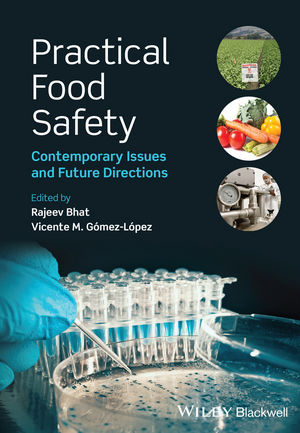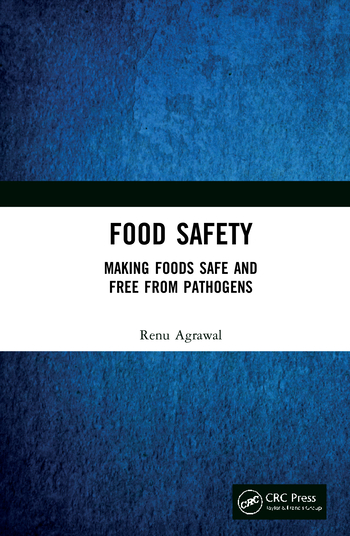Can blockchain solve new labeling requirement challenges?




Food Safety Strategies recently was able to talk with Karen Burns, from San Francisco Bay Area tax and consulting firm Sensiba San Filippo, about blockchain and Congress's new labeling requirements.
Liz Parker: How can blockchain make it easier for companies as Congress’s new labeling requirements roll out?
Karen Burns: While some food and beverage businesses may already adhere to strict labeling and ingredient tracking, others will find implementing these new changes extremely challenging. Meticulous recordkeeping and documentation will inherently change the way businesses approach processes and production. Gladly, blockchain can step in to help ease the burden and add extraordinary benefits in the process.
Essentially, blockchain is a growing list of records that are all linked using cryptography to create timestamps and track data with incredible accuracy. Blockchain has the ability to create an audit trail of every stage of a product’s development, from farm to shelf. For the food and beverage industry, this technology has the potential to trace all nutritional data and origins, connect supply chains and track every step of production for targeted recalls.
LP: What are the benefits of blockchain?
KB: As blockchain is an open, decentralized ledger, this tool can provide a high degree of transparency which is in high demand from consumers and retailers alike when it comes to supply chain visibility and how products are sourced. Additional supply chain benefits include shorter lead times, reduced redundancy, fewer delays, and ultimately a leaner supply chain.
The opportunity to provide transparent information to consumers in a consistent manner is a massive differentiator and a major asset when it comes to sustaining brand loyalty and creating a positive consumer experience. Food and beverage companies could provide consumers with a blockchain verified label in the form of a QR code to scan and see a full background of where, how and when their food was created. For products containing meat as their primary ingredient, blockchain can tag the origins and journey of the products from across the globe, including the ability to track and verify claims such as organic, grass-fed and natural. In the event of a recall, blockchain can identify contamination points and instantly track affected products and locations for quick resolution. Such targeted recalls can vastly decrease both cost and disruption to companies and their consumers.
LP: When did blockchain get started, and have most companies adapted to it?
KB: Blockchain has been around for about a decade, although originally intended for the cryptocurrency bitcoin. Many people still believe the terms bitcoin and blockchain can be used interchangeably although they are very different. Blockchain did not enjoy wider acceptance until as recently as 2014 and it is slowly impacting many industries, including food and beverage, with its disruptive technology. Yet, according to a 2018 survey by Gartner (a leading global research and advisory company), adoption rates are still at a low 1 percent and not expected to increase by much more in the short term. This is primarily due to technology limitations with scalability, lack of trust in the system, and lack of education about its ability to solve problems in an efficient, effective manner.
Due to recent E.coli outbreaks, Walmart began using the IBM Food Trust network which is a modular solution built on blockchain and connects network participants through a permissioned, immutable and shared record of food provenance, transaction data and processing details. It is requiring certain suppliers to participate on this network by fall of 2019. More recently, Albertsons, one of the largest food retailers in the US, jumped on board the blockchain train by announcing in April 2019 that it will be joining IBM’s Food Trust network to pilot the technology by tracing bulk romaine lettuce and then will explore expanding to other food categories throughout its distribution network. They recognize the need for increased transparency—from a packaging date, to the temperature at which an item was shipped, to its arrival on a grocery store shelf—to address a broad range of food quality issues for major retailers and consumers.
LP: What are your predictions for blockchain in the future?
KB: Like many other industries, the silver tsunami is upon us with baby boomers retiring in record numbers and turning over their businesses to the next generation. As the younger, more tech savvy generations take over, there will likely be wider acceptance and adoption. This will depend in part on the aforementioned issue of scalability. But again, this tech savvy generation should be able to solve that issue in record time.
Additionally, the benefits of participation will have to outweigh the costs. As participation on IBM Food Trust starts at $100/month, this is perhaps a small price to pay when considering this would allow companies to reduce their overhead liability (at least when it comes to recall insurance) or the larger costs associated with an actual recall, knowing that should an outbreak occur and they are able to trace the affected product back to the supplier, significantly reducing the quantity and locations of product that must be destroyed.
Karen Burns, assurance partner with Sensiba San Filippo LLP, has nearly thirty years of experience providing financial and business consulting services to companies in a variety of industries, with a particular passion for the manufacturing and distribution sector. She has great depth of experience working with rapidly growing manufacturing companies, from start-ups to multigenerational family businesses, helping them to identify opportunities, challenges, and trends.
Looking for a reprint of this article?
From high-res PDFs to custom plaques, order your copy today!











